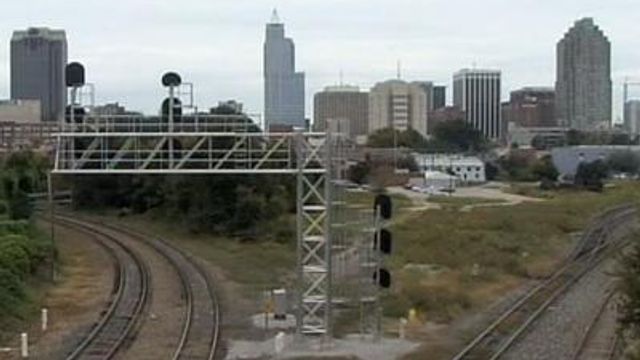Commuter rail system gets price tag
Could a 141-mile commuter rail line be in North Carolina's future? Proponents say it is a project headed on the right track but it won't be cheap.
Posted — Updated“I think we have the potential to be a leader in commuter rail transportation because we own an extremely valuable, 200-foot-wide corridor through the state,” said Scott Saylor, NCRR president.
Plans for a light-rail system stopped when federal funding fell through. Many said it was too expensive. So NCRR, which owns a 317-mile right-of-way from Morehead City to Charlotte, conducted its study to find out if commuter trains could run on current tracks – a cheaper way toward a commuter rail system.
“Our answer is yes. We think it's possible. In fact, we know it's possible,” said Bill Kincheloe, chairman of the NCRR board of directors.
If a Goldsboro-to-Greensboro commuter plan were implemented on the NCRR corridor, trains would make 29 stops in seven counties with a total population of more than 2 million, with 18 colleges and universities within two miles of the rail lines.
Durham Mayor Bill Bell says he likes the idea, but has concerns over funding.
“How does it get funded? We've got a lot of different needs that local government has, and we've got to put some priority on them,” Bell said.
Total infrastructure cost for new tracks, sidings and bridges along the 141 miles would be $650 million, and equipment and support facilities are estimated at $350 million.
Commuter rail on the NCRR could be implemented in less expensive phases according to ridership demand, Kincheloe said.
Some commuters say dense traffic on local highways is enough reason to give rail high priority.
“I think we need to afford whatever we need to afford, and again with the smog that all the cars are producing, I think we really don't have a choice,” commuter Michael Teague said.
Detailed studies on ridership and operating cost would have to be conducted, Kincheloe said.
“Eventually, something like this will have to be done,” Kincheloe added.
On NCRR's tracks, existing freight service, operated by Norfolk Southern, already touches 24 percent of the state’s economy and is projected to increase.
Funding for the rail conversion, NCRR representatives say, would have to come from all levels of government: federal, state and local.
• Credits
Copyright 2024 by Capitol Broadcasting Company. All rights reserved. This material may not be published, broadcast, rewritten or redistributed.





